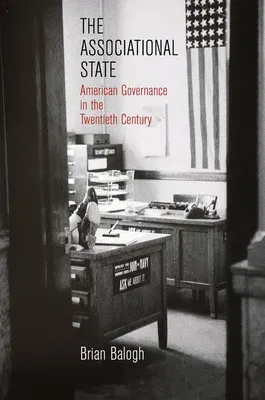In the wake of the New Deal, U.S. politics has been popularly imagined
as an ongoing conflict between small-government conservatives and
big-government liberals. In practice, narratives of left versus right or
government versus the people do not begin to capture the dynamic ways
Americans pursue civic goals while protecting individual freedoms. Brian
Balogh proposes a new view of U.S. politics that illuminates how public
and private actors collaborate to achieve collective goals. This
"associational synthesis" treats the relationship between state and
civil society as fluid and challenges interpretations that map the
trajectory of American politics solely along ideological lines. Rather,
both liberals and conservatives have extended the authority of the state
but have done so most successfully when state action is mediated through
nongovernmental institutions, such as universities, corporations,
interest groups, and other voluntary organizations.
The Associational State provides a fresh perspective on the crucial
role that the private sector, trade associations, and professional
organizations have played in implementing public policies from the late
nineteenth through the twenty-first century. Balogh examines key
historical periods through the lens of political development, paying
particular attention to the ways government, social movements, and
intermediary institutions have organized support and resources to
achieve public ends. Exposing the gap between the ideological rhetoric
that both parties deploy today and their far less ideologically driven
behavior over the past century and a half, The Associational State
offers one solution to the partisan gridlock that currently grips the
nation.

